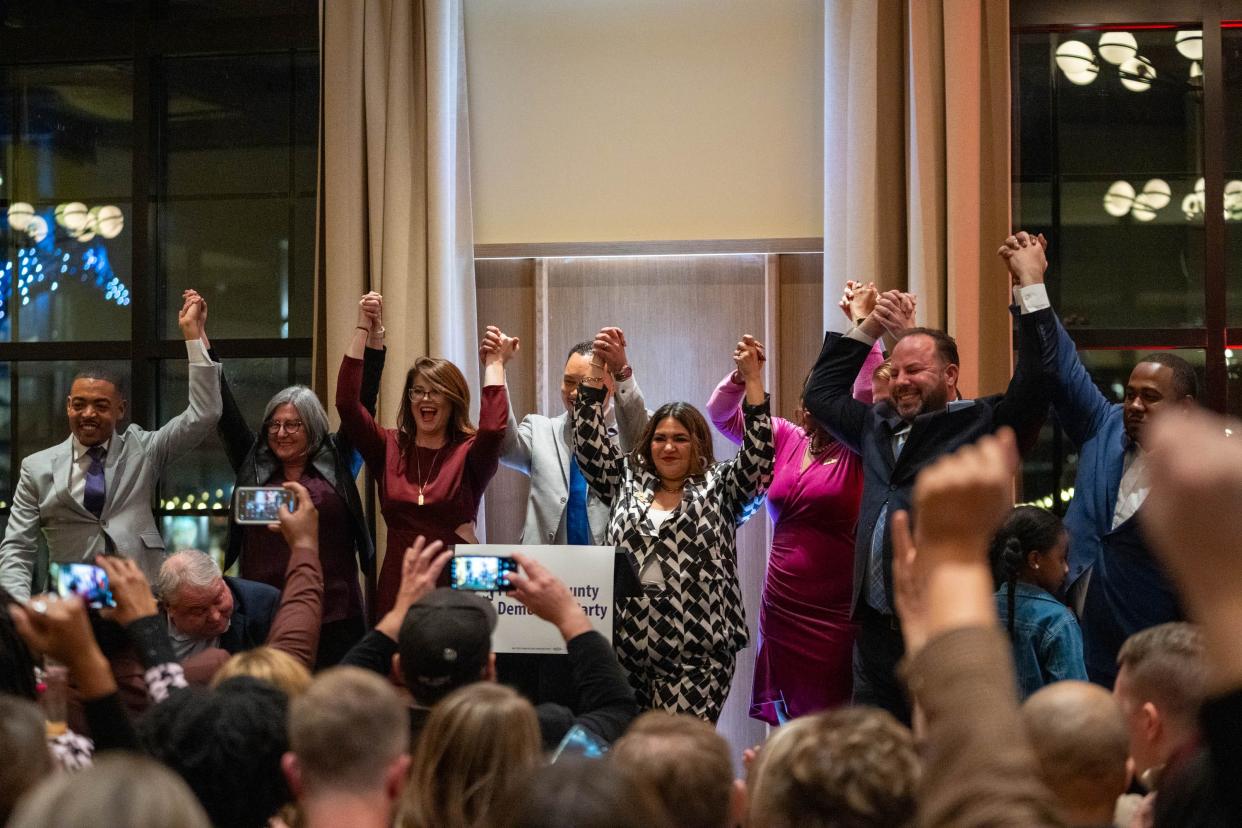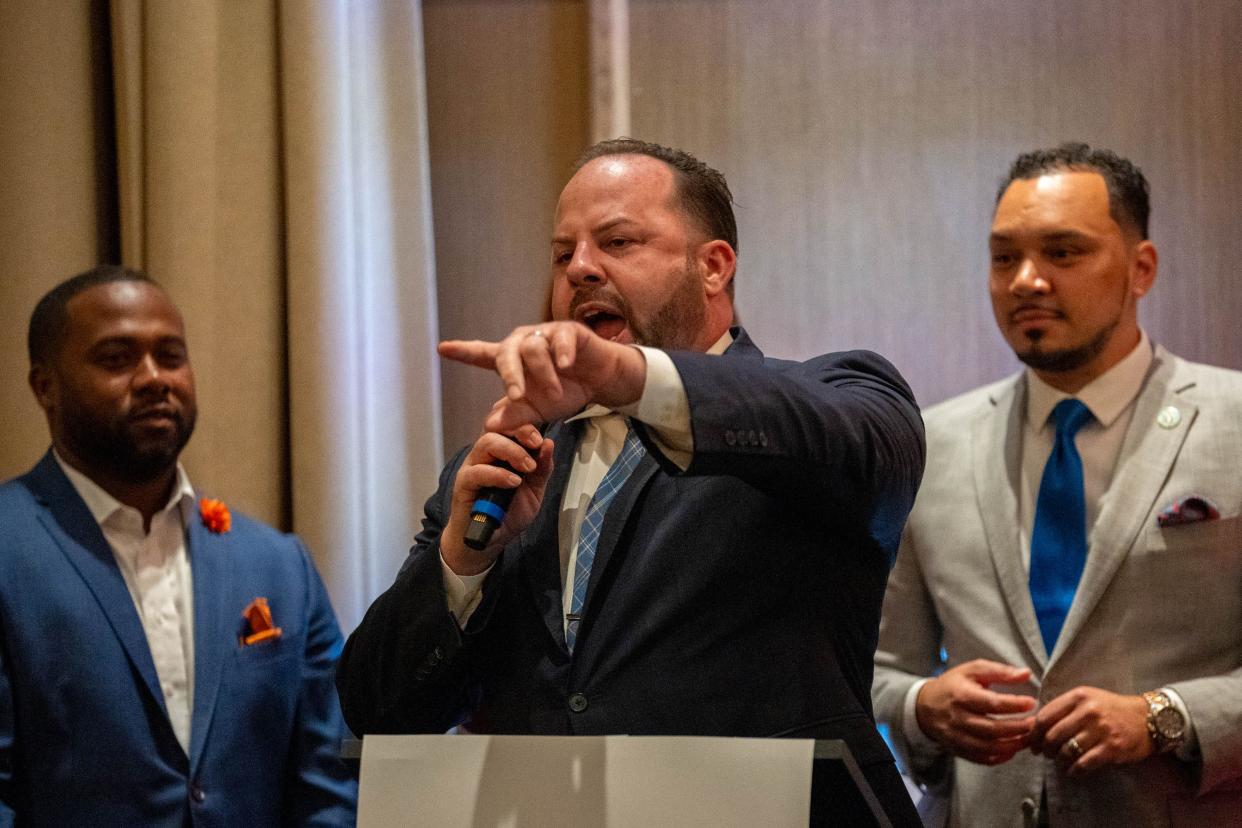New nine-member 'residential district' Columbus City Council looks much the same as old one

With a majority of the Columbus City Council running unopposed and the three opposed races featuring candidates backed by the powerful Franklin County Democratic Party, few surprises were expected in Tuesday's election.
And voters didn't deliver any.
In the first election enacting a 2018 city charter change that increased the City Council from seven members elected at-large to nine members elected at large, but who each must reside in a unique residential district, voters returned six incumbents to the panel, including Council President Shannon Hardin.
"This election was about the future of our city and the future of our state," Hardin said after declaring victory Tuesday night at a packed Franklin County Democratic Party election watch celebration Downtown. "Columbus voters elected nine Democrats to represent our city, to help move it forward, to do things like create more transit, create more housing, to make sure that folks are safe."
Proponents of the new residential districts said the additional two members would ensure a more diverse council. But the same group — along with some party-supported newcomers — will continue many of the policies of the past, likely including controversial property tax abatements for high-priced real estate, and a new developer-friendly rewrite of the zoning code.
Mayor Andrew J. Ginther, also re-elected to a new four-year term, made clear Monday night that the growth policies will continue.
Hardin and three other incumbent councilmembers had no opponent and were guaranteed wins so long as they voted for themselves. And, no surprise, Rob Dorans, Shayla Favor and Lourdes Barroso de Padilla were safely reelected.

Two other incumbents, Emmanuel Remy and Nick Bankston, faced challenges from candidates who reside within their new residential districts, in which only one candidate could emerge victorious.
"This election is about the progress that we've been making as a city," Bankston told The Dispatch at the victory celebration. "The city of Columbus is stepping up to say the direction of the city is the right direction."
In District 4, Remy faced Adrienne Hood, 51, who became a community activist after her 23-year-old son, Henry Green, was fatally shot eight times by Columbus police during an exchange of gunfire in June 2016. With 99% of precincts reporting in unofficial results, Remy was winning 60% to 40%.
In District 5, Bankston faced Republican Farxaan Jeyte, a small-business owner who came to the United States as a teenage refugee from the civil war in Somalia in the early 1990s. Bankston was leading in the unofficial returns 70% to 30%.
The final contested race in District 2 featured two political newcomers to City Council, Republican Luis Gil faced endorsed Democrat Nancy Day-Archauer. Day-Archauer was winning 72% to 28% in unofficial returns.
Two other political newcomers were guaranteed seats by virtue of having no opponent from their residential districts. They are: Chris Wyche (District 1), who is an external affairs manager with AT&T Ohio, and Melissa Green (District 6), a social worker. Needing only their own votes to win, both were successful in their first runs for office.
Proponents say the new setup will ensure a more diverse council. But critics say no place in Ohio has a system where voters citywide elect representatives in all districts. Usually, only residents of that council ward or district vote for the member from that district.
Hardin and Ginther appointed a committee in 2015 to examine changes to the City Council election format after voters considered a citizen-led ballot issue that would have expanded the council to 13 seats, including 10 members elected by voters in wards, in which only those living in a ward could vote for their representative. Voters overwhelmingly rejected that proposal at a special election that drew low turnout.
In May 2018, Columbus voters overwhelmingly chose the residential district plan that had been put forward by City Council.
wbush@gannett.com
@ReporterBush
This article originally appeared on The Columbus Dispatch: Six Democrat incumbents, 3 newcomers, win Columbus City Council seats





